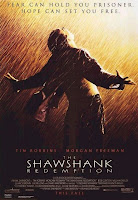The latest poll is ready for you to collectively decide which year becomes the next focus of review. Just move your eyes over to the right. Meanwhile, we begin our look at the nominees in the Academy's Best Picture race of 1962...

.jpg)

The Longest Day
Directors:
Ken Annakin, Andrew Marton, Bernhard Wicki
Screenplay:
Cornelius Ryan, Romain Gary, James Jones, David Pursall, Jack Seddon
(based on Ryan's book)
Starring:
Eddie Albert, Paul Anka, Richard Burton, Red Buttons, Sean Connery, Mel Ferrer, Henry Fonda, Gert Fröbe, Curd Jürgens, Alexander Knox, Peter Lawford, Roddy McDowall, Sal Mineo, Robert Mitchum, Kenneth More, Edmond O'Brien, Robert Ryan, George Segal, Rod Steiger, Richard Todd, Robert Wagner, John Wayne, and a whole lot of other people
Academy Awards:
5 nominations
2 wins
The term "ensemble piece" was never more appropriate than as a description of The Longest Day, unmistakably a gigantic collaboration. It relates the real-life events surrounding the Allied invasion of Normandy on D-Day, the 6th of June, 1944. The story is told from the perspectives of all sides - the British, the Americans, the Germans and the French. Literally dozens of characters, from top military leaders to the soldiers in the thick of it, engage in battles on beaches, in towns, on cliffs and on bridges. Meanwhile, Hitler sleeps.
As that rather lazy synopsis might indicate, it is difficult to capture the plot of The Longest Day for one very simple reason - it is immensely intricate. In fact, the picture's use of narrative is more akin to a sketch comedy show, except the comedy is only occasional and, of course, there is a single theme to every sketch. But essentially, the scenes are each brief episodes detailing a specific element of the famous military operation, many of which are only indirectly related to each other. While there are several subplots that carry through the length of the film, the majority of characters have relatively little screen time, sometimes only a scene or two. Subtitles are employed to display the name and rank of each new major character as they appear, which is only marginally helpful since there are just so bloody many of them!
The picture is based on a military history which was itself based on numerous interviews with actual participants in the events, some of whom acted as military consultants during production. Consequently, the film's authenticity is hard to deny. Indeed, many of the briefest episodes are easy to imagine as anecdotes told by someone involved. Adding to the authenticity is the fact that the German and French characters all speak their native language, plus the English-speakers emit a diverse range of seemingly authentic accents. (I suspect most, if not all, the actors were using their natural dialect.)
.jpg)
Despite - or perhaps because of - the film's employment of three directors (more proof of its collaborative nature), the visual craft on display is spectacular. In particular, the battle sequences are a sight to behold, brilliantly and elaborately staged. It is no wonder then that the film's two Oscar wins came in the categories of Black-and-White Cinematography and Special Effects.
Fittingly for an ensemble, the actors all deliver equally effective performances. A few of my favourites, however, were Robert Mitchum (pictured) as a casually stubborn American Assistant Commander, Richard Burton as a brooding British Flying Officer and Curd Jürgens as a frustrated German General. Coincidentally, Jürgens is not the only future Bond villain (he later played Stromberg) to appear in the film. Gert Fröbe (Goldfinger himself) plays an officer named Kaffeekanne, which is German for "coffee pot", the item he is never without. As if two Bond villains weren't enough, the original 007, Sean Connery, delivers his last pre-Bond performance as a Scottish Private.




.jpg)

.jpg)

.jpg)




